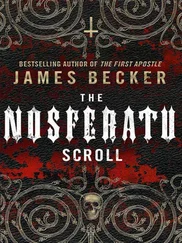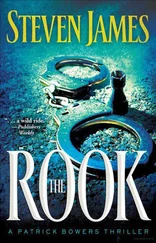James Becker - Echo of the Reich
Здесь есть возможность читать онлайн «James Becker - Echo of the Reich» весь текст электронной книги совершенно бесплатно (целиком полную версию без сокращений). В некоторых случаях можно слушать аудио, скачать через торрент в формате fb2 и присутствует краткое содержание. Жанр: Триллер, на английском языке. Описание произведения, (предисловие) а так же отзывы посетителей доступны на портале библиотеки ЛибКат.
- Название:Echo of the Reich
- Автор:
- Жанр:
- Год:неизвестен
- ISBN:нет данных
- Рейтинг книги:3 / 5. Голосов: 1
-
Избранное:Добавить в избранное
- Отзывы:
-
Ваша оценка:
- 60
- 1
- 2
- 3
- 4
- 5
Echo of the Reich: краткое содержание, описание и аннотация
Предлагаем к чтению аннотацию, описание, краткое содержание или предисловие (зависит от того, что написал сам автор книги «Echo of the Reich»). Если вы не нашли необходимую информацию о книге — напишите в комментариях, мы постараемся отыскать её.
Echo of the Reich — читать онлайн бесплатно полную книгу (весь текст) целиком
Ниже представлен текст книги, разбитый по страницам. Система сохранения места последней прочитанной страницы, позволяет с удобством читать онлайн бесплатно книгу «Echo of the Reich», без необходимости каждый раз заново искать на чём Вы остановились. Поставьте закладку, и сможете в любой момент перейти на страницу, на которой закончили чтение.
Интервал:
Закладка:
“Maybe.” Angela didn’t sound convinced. “Or perhaps they knew exactly what they were doing. Don’t forget that this project was the brainchild of one of Germany’s leading physicists, Walther Gerlach. He was a full professor, and his work on the behavior of atoms in a magnetic field was part of the founding science of quantum physics. He was a smart man and he surrounded himself with an equally smart team.”
Bronson grunted and glanced round the chamber again. In the center of the floor was a tangle of power cables. If their theory was correct, this would have run from the coal-fired power station they guessed had been built above the complex, somewhere near the Henge. He settled the beam of his flashlight on a long horizontal glass window that was the dominant feature of one wall.
“I suppose the control room was probably behind that,” he suggested.
They walked out of the circular room and pushed open the door, which gave access to the chamber on the other side of the glass-glass that had a peculiar greenish glow in the light, and which was obviously at least a couple of inches thick.
Where the large chamber had been almost bare, this room was equipped with banks of instruments, dials and switches, clearly designed to control whatever experiments had been conducted on the other side of the glass viewing pane. Swivel chairs were ranged in front of the control panel, and there were other dials and switches on the back wall.
Angela shone her flashlight at the markings still visible on the various controls, then took a compact dictionary out of her pocket and began jotting down notes in a small book.
“Anything useful?” Bronson asked after a few minutes.
“Sort of, yes,” she replied.
She pointed at two dials set side by side and more or less in the center of the panel.
“The legend above these decodes as ‘centrifuge,’ and the dials seem to be intended to record the speed of rotation. Die Glocke apparently contained two counterrotating components-one inside the other, according to this schematic drawing-but the numbers don’t make much sense. The dials are labeled from zero to ten, and they’re both red-lined at eight, and I suppose that could mean eighty, eight hundred or maybe eight thousand.”
“Actually,” Bronson said, “centrifuges generally have a very high rotation speed, so it could even be eighty thousand. Anything else?”
“There are power meters and switches, that kind of thing, but nothing that seems to measure the output of the device, or give any hint about what it was supposed to do or generate. As far as I can see, all these instruments just controlled or measured the power input and what the device was doing.”
“Maybe what it did wasn’t something they could measure using instruments.”
Angela nodded.
“That would make sense, actually. The most persuasive suggestion I read was that this thing was supposed to turn thorium 232 into protactinium 233 or maybe even straight to uranium 233. This isn’t my field of expertise, obviously, but from what I read, protactinium is highly toxic and very radioactive. Nasty stuff, in short. There was another suggestion that the Nazis could use the same technology, and the same device, to convert uranium 238, another isotope of the element, into plutonium. And with enough plutonium, they would have been able to build a nuclear bomb.”
“That’s the nightmare scenario, isn’t it? But I wonder how close the Nazis really were to succeeding. After all, the Americans’ Manhattan Project cost tens of millions of dollars in the nineteen forties, which would be billions today, employed the best scientists and engineers they could find, and by the end of the war they’d only managed to build two working weapons, of two different types. And both of those were incredibly inefficient in terms of yield. I read somewhere that the Hiroshima bomb only used a tiny percentage of the fissile material in the warhead, maybe as little as six hundred milligrams.”
“It did the job, though,” Angela said.
“Definitely. That was enough to give it a yield of about fifteen kilotons. Do you really think that the Bell could have produced uranium or plutonium?”
“We know it didn’t produce enough to let them construct a nuclear weapon, but that’s not what worries me. Whatever Die Glocke was capable of doing back in the nineteen forties, we do know that it was almost certainly producing copious amounts of radiation, and that was probably what killed the German scientists working on it, and of course also murdered any test subjects they had chained to the walls of the chamber when they switched it on.
“From what I’ve been able to find out, the device probably generated extremely powerful X-rays when it was running, as a part of the transmutation process when a plasma was created. That would be enough to kill anyone nearby, but not necessarily very quickly. But for thorium to transmute into uranium it has to absorb additional neutrons and protons, and the Nazis probably used beryllium oxide as the source of these particles. That means the device would also have generated beta radiation-the emission of protons.”
“I don’t really need a lesson in nuclear physics, Angela,” Bronson said. “Just tell me if X-rays and beta radiation would have been enough to kill people near the device.”
“Almost certainly, and probably to kill them quickly and unpleasantly. Some reports refer to the flesh of the test subjects liquefying.”
“So forget the possibility of the Nazis manufacturing uranium or plutonium. Just running this thing would be enough to generate lethal radiation. What we’re looking at here is a kind of sophisticated dirty bomb, but instead of the particles of radioactive material being blown in all directions by explosive charge, in this case they would presumably be emitted in a continual stream for as long as the device was running.”
“Yes. And there’s something else we need to remember.”
“I know,” Bronson said, “and that was what it could do in the nineteen forties, when it had only just been developed. Wherever the Bell went, and whoever took it, they’ve had seventy years or so to refine it and get it right. And that’s really bad news.”
“I think we-” Angela began, then stopped abruptly as Bronson put his finger to his lips. From somewhere in the tunnel system he’d just heard a sudden thump or bang, as if a large object had fallen over.
Then they both heard a faint metallic clatter. Sounds echo in confined spaces, and it was impossible to work out exactly where the sound had come from. But there was no mistaking what it meant.
Someone else was in the mine with them.
42
26 July 2012
“One more thing, Klaus,” Wolf said.
The two men were sitting on opposite sides of the desk in the study, and had been going over the final sequence of events that would culminate in the completion of the operation. These particularly concerned the actions that were to take place in London when the device was first positioned and then activated using the built-in timer system. Marcus himself was going to supervise and initiate this final phase. It was his destiny. He would be fulfilling the wishes of his long-dead grandfather, and realizing the dreams of all the members of Die Neue Dammerung, members both alive and dead, who had worked together over the decades to bring this triumph for the Fatherland to its climax.
“Yes?”
“I’m still worried about Bronson and what he’s doing. If he was still in the vicinity of Berlin, somebody-either the police or our men-would have seen him, and there’s still been no word from Oskar, I suppose?”
“Nothing so far,” Klaus replied.
“Do you know where he is now?”
“He’d just crossed the border into Poland the last time he called; he hoped to reach the mine within two or three hours.”
Читать дальшеИнтервал:
Закладка:
Похожие книги на «Echo of the Reich»
Представляем Вашему вниманию похожие книги на «Echo of the Reich» списком для выбора. Мы отобрали схожую по названию и смыслу литературу в надежде предоставить читателям больше вариантов отыскать новые, интересные, ещё непрочитанные произведения.
Обсуждение, отзывы о книге «Echo of the Reich» и просто собственные мнения читателей. Оставьте ваши комментарии, напишите, что Вы думаете о произведении, его смысле или главных героях. Укажите что конкретно понравилось, а что нет, и почему Вы так считаете.












